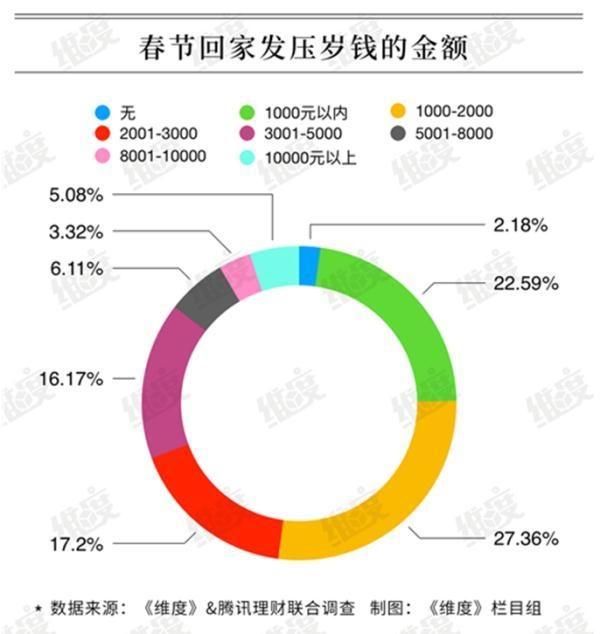【背景】
春节即将到来,不少人在期待着假期的同时,也开始担忧荷包。给长辈的红包、给晚辈的压岁钱、准备年礼……这一年又白干了吧!1月22日,《维度》联合腾讯理财发布春节消费调查报告,结果显示,37.06%的受访者表示春节预计消费超万元,2成压岁钱支出超5000元。
【新闻】
请看《中国日报》的报道
A survey on expense budgets for the upcoming Spring Festival said that the high expenses of the holiday have become a financial burden for some.
一项春节消费调查显示,对一些人来说,春节期间的高昂花费已经成为经济负担。
【讲解】
expense budgets是消费预算;financial burden是经济负担。
调查显示,超过41%的受访者(survey participants)表示春节的消费超过了自己一个月的到手收入(monthly after-tax income),还有2.48%的人春节支出超出(exceed)了自己半年的到手收入。9.1%的受访者表示自己过年主要靠借钱(borrow money)。
37.06%的受访者(respondents)预计春节消费(expenses for Spring Festival)超万元。
近7成受访者表示春节时会给长辈红包(give gift money to seniors in the family),其中26.81%的受访者给长辈的红包已成为春节最大的一笔支出(the biggest expenditure)。
调查发现,85后(people born after 1985)承担了最重的压岁钱负担,99.31%的85后都表示春节期间要发压岁钱(distribute gift money to children)。近半数受访对象(half of those surveyed)表示发压岁钱的金额将超2000元。
而对90后来说,婚礼礼金(cash gifts for weddings)的支出是春节期间最重要的支出项目。10.2%的90后在春节期间支出最大的项目(the largest expense for the Spring Festival holiday)都在礼金上,这一比例远远超过其他年龄段(other age groups)。
分析人士认为,导致春节消费开支大(high expenses)的祸首,或许是中国人长久以来的消费习惯(spending habits)。中国人平时大都是勤俭节约的(frugal),但每到春节期间,压抑了一整年的购物欲望随着节日的到来集中爆发了(sets off an impulse for crazy shopping)。
39.8%的受访者表示,春节期间自己的消费行为会比平时更加没有节制(spend at will)。

可可原创,未经许可请勿转载












